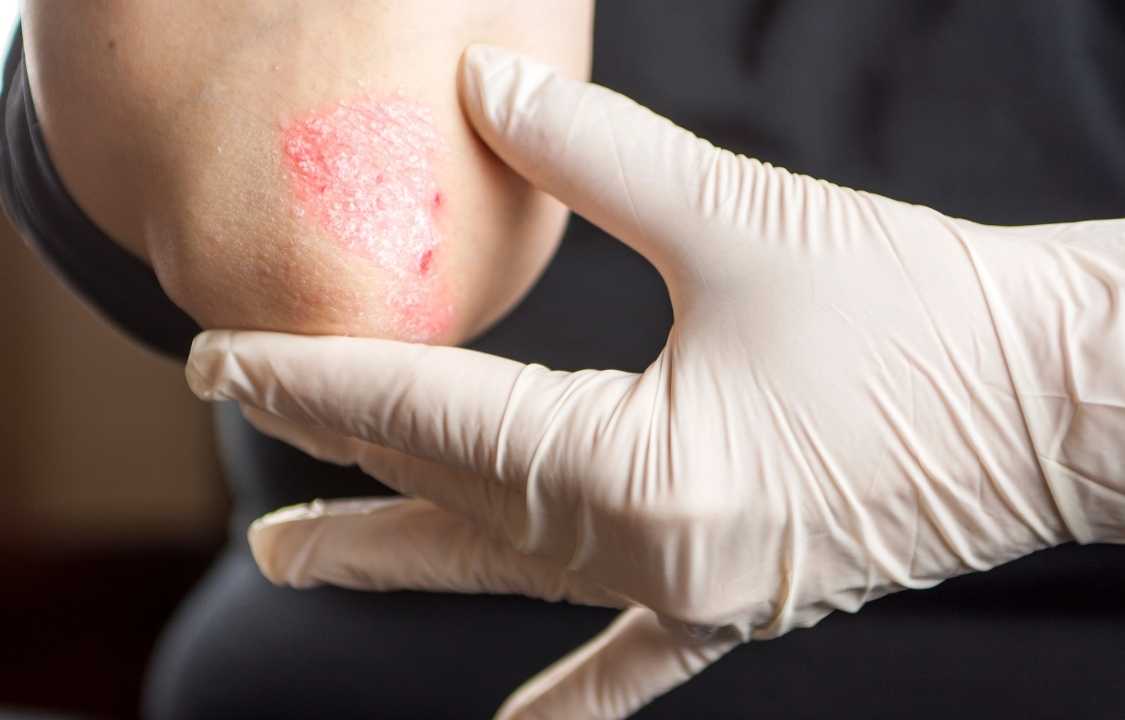Health Care, Medical Care, Treatment
How Is Psoriasis Treated?
There is no cure for psoriasis. But, a variety of treatment options can help you manage symptoms.
Psoriasis, a chronic autoimmune disease, presents a complex challenge as it leads to the rapid proliferation of skin cells, resulting in the development of inflamed patches and scales known as plaques. These plaques are often accompanied by itching, a burning sensation, or stinging. While psoriasis can manifest on various parts of the body, it most frequently appears on the elbows, knees, and scalp. It’s crucial to recognize that there are several distinct types of psoriasis, each with its unique characteristics, and the type you have influences your symptoms and treatment options. Furthermore, approximately one-third of individuals with psoriasis may also develop psoriatic arthritis (PsA), a related condition that affects the joints.
Though a definitive cure for psoriasis remains elusive, healthcare providers typically recommend a multifaceted approach to help patients manage their condition effectively.
Topical Treatments
Topical treatments, such as creams and ointments that can be directly applied to the skin, often serve as the initial line of defense against psoriasis. Healthcare providers may prescribe topical steroids, including anti-inflammatory creams, or recommend over-the-counter (OTC) topical treatments. It’s important to note that when considering OTC treatments, referring to the National Psoriasis Foundation’s Seal of Recognition program for psoriasis-approved products can ensure their safety and effectiveness for individuals with psoriasis.
Common ingredients found in OTC treatments include salicylic acid, which aids in shedding dead skin cells and softening plaques, and coal tar, which helps reduce inflammation and slow skin cell growth. However, it’s essential to be cautious, as certain topical treatments may irritate the skin. Before using a new product, conducting a patch test on a small area of the skin can help determine if any adverse reactions occur. Consulting with a healthcare provider or dermatologist for product recommendations can also be beneficial.
Phototherapy (Light Therapy)
Phototherapy, often referred to as light therapy, involves the use of ultraviolet (UV) rays to illuminate the skin. These rays can effectively slow down the rapid growth of skin cells, reducing inflammation and discomfort. Research suggests that participants undergoing 20 to 36 light therapy sessions experienced significant improvements, including reduced inflammation and itching. Typically, light therapy is administered by healthcare providers in their offices or clinics.
While some individuals with psoriasis opt to purchase phototherapy machines for at-home use, it’s important to note that insurance coverage is more common for clinic-based treatments rather than at-home machines. Potential side effects of light therapy include temporary skin redness, stinging or burning sensations, dark spots (more common in individuals with darker skin tones), itchiness, and, in rare cases, blisters and burning. Notably, individuals with a history of skin cancer or conditions rendering them sensitive to UV light, such as lupus, may not be candidates for light therapy.
Medications
Psoriasis management often involves the use of medications, with systemic medications and biologics being the most common categories.
- Systemic Medications: These oral prescription medications aim to slow down the excessive growth of skin cells and are typically reserved for individuals with moderate-to-severe psoriasis or psoriatic arthritis. Common systemic medications include acitretin (soriatane), cyclosporine (Gengraf, Neoral, or Sandimmune), and methotrexate (Otrexup, Rasuvo, or RediTrex). Each of these medications comes with its own set of potential side effects, and your healthcare provider will assess your medical history and specific diagnosis to determine the most suitable option for you.
- Biologics: Biologics are administered via injection or intravenous infusion and target specific components of the immune system responsible for accelerating skin cell growth. This treatment is often recommended when systemic medications or topical treatments have not yielded satisfactory results. Various brands of biologics are available, and your healthcare provider will select the most appropriate one based on your individual circumstances. While biologics can be effective, they may increase the risk of infections, necessitating vigilant monitoring for any signs of illness.
Complementary Remedies
Many individuals with psoriasis find that natural remedies complement traditional treatments and provide relief from symptoms. It’s crucial to consult with your healthcare provider before using any complementary medicine, and natural remedies should typically be used in conjunction with traditional treatments. Some natural remedies to consider include aloe vera, sea salt baths, and tea tree oil. Conducting a patch test on a small area of skin before using any topical remedies can help ensure they are well-tolerated.
Additional Lifestyle Recommendations
Incorporating certain lifestyle adjustments can further enhance psoriasis management:
- Gentle Hygiene Practices: Using mild soaps and lukewarm water during showers or baths can help prevent skin irritation.
- Skin Hydration: Regularly applying gentle moisturizers can alleviate dryness and discomfort associated with psoriasis.
- Skin-Friendly Clothing: Opt for loose-fitting, soft fabrics to minimize skin irritation caused by tight-fitting clothing.
- Physical Activity: Regular exercise, including massages to improve blood circulation, can promote overall well-being.
- Stress Management: Maintaining open communication with loved ones and employing stress-reduction techniques, such as meditation and yoga, can be beneficial.
- Mental Health Support: Don’t hesitate to seek support from a mental health professional if you experience feelings of anxiety or depression related to your psoriasis diagnosis.
Conclusion
In summary, while a definitive cure for psoriasis remains elusive, individuals diagnosed with this condition have access to a range of effective treatments and self-care strategies to manage their symptoms effectively. The choice of treatment depends on the specific type and severity of psoriasis, and healthcare providers often tailor a combination of approaches to address individual needs and preferences. Psoriasis management typically includes topical treatments, phototherapy, medications, natural remedies, and lifestyle adjustments. It is essential to work closely with your healthcare provider to develop a personalized treatment plan that best addresses your unique circumstances and ensures the most effective management of your psoriasis.

